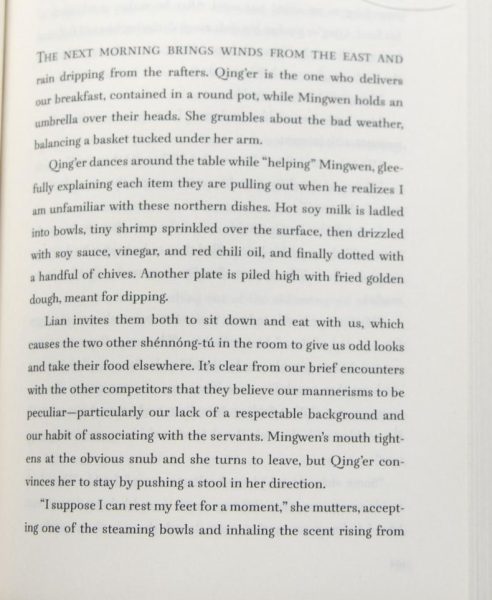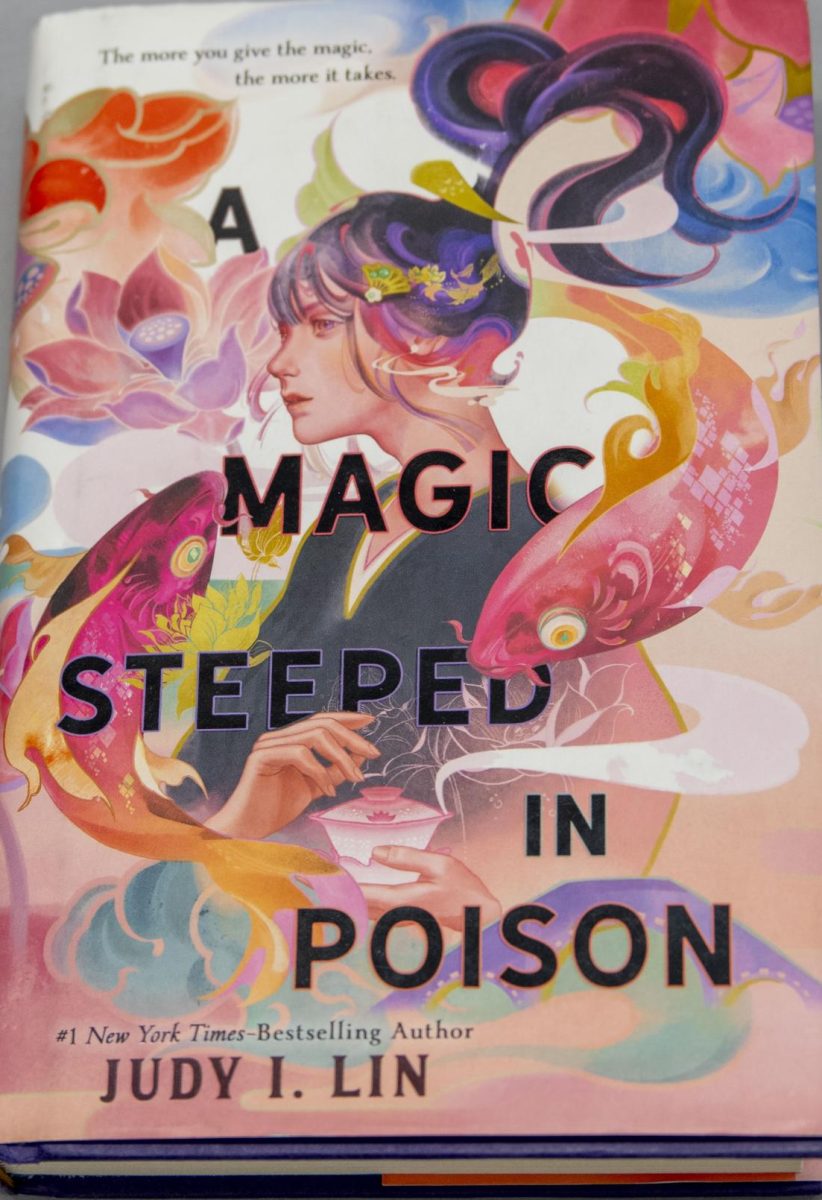Asian-inspired fantasy is both a vast and incredibly repetitive genre. When I first discovered the genre, I found it compelling- the cohesion of romantic and fantastical plots with Asian myths, legends, settings and protagonists proved to create fun, engaging stories. That is, until I read more than five books in the genre.
There’s a distinct pattern to the genre at large: hardcover books with gorgeously illustrated covers, set in an ancient time period filled with incredible magic and narrated from a first person perspective. A female protagonist sets off on a magical journey, motivated by duty to her family, and along the way, ends up falling for the dark haired, mysterious male lead; I’ve seen it a million times before. Stuffed full of basic tropes and predictable plotlines, these books never end up being enjoyable reads for me.
When picking up “A Magic Steeped in Poison” by Judy I. Lin for the first time, all of this ran through my head- but then, ever the optimistic, I bought the book anyways. I mean, there’s no way a cover that gorgeous could be wasted on a badly written story, right?
Wrong. Goodbye to the $18.99 (plus tax!) that I will never see again. You will be missed.
“A Magic Steeped in Poison” focuses on Ning, a girl from a small village whose mother recently died. The cause of death was a cup of tea brewed by Ning’s own hand; unbeknownst to her, the tea block she’d used had been poisoned. Now, her sister suffers from the poison as well. An invite has come from the imperial city to Ning’s own home, for a competition intending to find the kingdom’s best up-and-coming shénnóng shī- masters of the magical art of tea making. The prize for this competition? A favor from the princess herself. Ning’s mother was a shénnóng shī, so, utilizing the skills she’d learned from her, Ning takes it into her own hands to compete, hoping to win the favor to save her sister.
I’d heard mixed reviews before starting the book- a few close friends of mine criticized it heavily, while the internet seemed to like it plenty. But the amount of genuinely good books recommended by the BookTok community come few and far between, so I was more inclined to believe the bad rather than good. Still, I tried not to let my precursory biases be too influential on my opinion.
For the record, I still thought it was bad (if that wasn’t clear enough already), but it wasn’t entirely horrible; so let’s focus on the good for a moment. Lin’s style of writing is really beautiful, its elegance especially shined through when she described the food of the imperial city. Every time Ning encountered a new dish or sat down for a meal, I found my mouth watering, no matter how long ago my own last meal was. The magical aspect of the story also intrigued me; the way that Ning and the other competitors handled the tea, drawing magic out of the brew, was an interesting concept to read about.

And while those two points of the story made me want to finish the book, every other part of it screamed at me to put it back on the shelf and start something new. My biggest issue was the characters. It wasn’t so much that Ning was an indecisive character, but that Lin was indecisive when writing her. Her actions and inner monologue consistently clashed with each other, and even within her internal thoughts, there was a host of discrepancies. Despite the book being nearly 400 pages, by the end of it, I can’t say that I actually felt like I knew Ning at all. This is applicable to the supporting cast as well- they all suffered from the same inconsistent character that made Ning a weak protagonist. Not only that but, the plot itself wasn’t engaging- it was just a series of convenient coincidences that placed Ning at the center of it. She was annoyingly passive; rather than actually doing anything within the story, the story came to her with each chapter and plot point. It was difficult to feel immersed in the book when the narrator herself felt so distanced from the events within it. While the concept for the plot had potential, the execution was severely lacking.
Despite the fact that the cover for the sequel is just as gorgeous as the first book’s, I won’t
purchasing it, or even borrowing it to read. Yes, this genre can be repetitive and the storylines trite, but there are a handful of gems within it, and “A Magic Steeped in Poison” is, unfortunately, not one of those.





